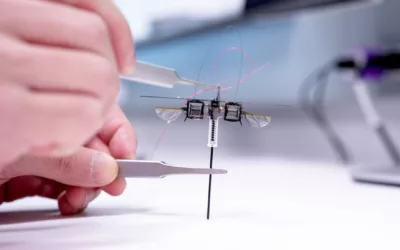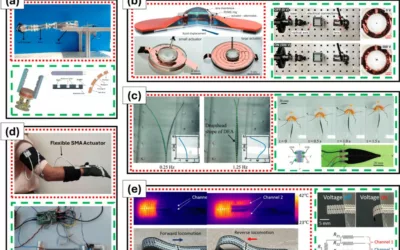Opentrons, a maker of lab automation equipment, is thrilled to announce the launch of its groundbreaking Opentrons Flex robot. This liquid-handling lab robot is purportedly affordable, easy to program, and aims to democratize advanced lab automation by making it accessible to labs of all sizes. By combining advanced robotics with an extensive ecosystem of open-source software, the Flex robot is compatible with AI tools and can learn new protocols. This latest product release builds upon Opentrons’ existing success with customers such as the Mayo Clinic, Harvard, and MIT.
Opentrons’ mission is to empower scientists to carry out their lab work exactly as they desire. Unlike traditional laboratory robotics that require extensive software expertise and months of training, the Flex robot’s open-source design and accessible API will make it appealing to scientists across the life sciences field, particularly those advancing generative AI. The Flex robot was specifically designed to be compatible with “design-of-experiment” programs, including AI-driven agents. As more scientists contribute applications to the platform, the open-source nature of the Flex enables Opentrons to enhance its AI algorithms, leading to even more seamless automation. This, in turn, promotes reproducibility and adaptability in life science labs worldwide. The Flex robot distinguishes itself from legacy lab automation solutions through several key differentiators:
- Cost-effectiveness: With a total cost of ownership only 1/10th of its competitors, the Flex robot allows labs to stretch their budgets tenfold, making advanced automation accessible to a larger number of researchers.
- Speed and efficiency: The Flex robot can be quickly set up or reconfigured for a new application, reducing the time required compared to conventional approaches. This enables scientists to devote more time to their research.
- Self-learning capabilities: Researchers have complete access to Opentrons’ library of over 500 community and verified protocols. The Flex robot offers an unmatched range of options and can be used out-of-the-box or customized to create innovative experiments using generative AI tools.
Opentrons robots have been shipped to more than 40 countries and are fundamental tools in labs worldwide seeking to automate their molecular biology and biochemistry research. Thousands of scientists and institutions, including 70 percent of the top 10 largest pharmaceutical companies and 90 percent of the top 50 biology research universities, rely on Opentrons robots for their laboratory needs. They also collaborate through OEM partnerships, providing customers with access to its hardware and software stack capabilities.








